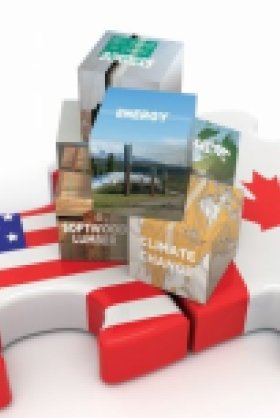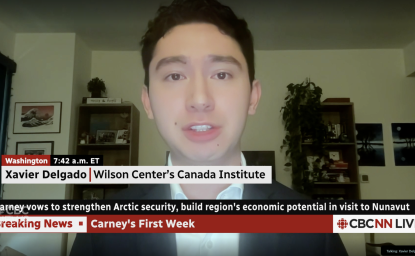Managing the Canada-US Relationship From the Honeymoon to the Long-term


The Canada-United States relationship is the largest and most extensive in the world. The degree of economic interconnectedness is unrivaled and the mutual benefits are equally significant. Our defence and security coordination is institutionalized and operates on virtually seamless basis. The “special relationship”, as Prime Minister Justin Trudeau aptly described it in a speech last summer, has deep roots.
Yet strong bilateral relations should not be taken for granted. It takes big ideas, well-developed working relationships, and effective engagement to advance bilateral issues and promote Canada’s interests. Put differently: it is unsophisticated to think that geographical proximity is somehow a substitute for what President Harry Truman called “good will and common sense.”
Prime Minister Trudeau has thus far exhibited an understanding of this reality. He has carried himself well in early interactions with President Barack Obama and is now the first Canadian leader to receive a state dinner in nearly 20 years. It is a positive sign and one for which the new government ought to be lauded.
But warm personal relationships are not a sufficient condition for effective bilateral engagement, especially since President Obama’s term will soon be over and his leading successors have put forward ideas that may not be aligned with Canada’s interests. The key, then, is for the Trudeau government to develop a comprehensive strategy to advance Canada’s interests in Washington. Thursday’s dinner is an excellent start.
We are honoured to release this essay in conjunction with the The Macdonald-Laurier Institute whose mission is to help to inform sound public policy at the federal level. Our goal in this essay series is to help the new Canadian government to best achieve its top policy objectives.
This essay recommends five areas of focus for the new prime minister and his government. In particular, we recommend that the prime minister’s priorities for bilateral engagement ought to be (1) North America’s energy needs, (2) climate change, (3) softwood lumber, (4) balancing economic and security interests at the border, and (5) Arctic cooperation. These priorities can serve as a policy blueprint for a renewal of the Canada-US relationship in the short- and long-term. The ultimate goal is to strengthen what is indeed a “special relationship” between Canada and the US.
Read the full commentary here.
Authors

Executive Director, Future Borders Coalition


Canada Institute
The mission of the Wilson Center's Canada Institute is to raise the level of knowledge of Canada in the United States, particularly within the Washington, DC policy community. Research projects, initiatives, podcasts, and publications cover contemporary Canada, US-Canadian relations, North American political economy, and Canada's global role as it intersects with US national interests. Read more




